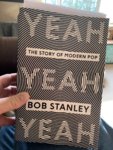Teeeee
Well-Known Member
This interests me greatly. would you recommend it?
i ask as, Culturally, the Portuguese have someone stand vigil over their body after death. Even through cremation. When my wife’s father died, none of his sons said they could bare to do that for their dad as they were so overwhelmed with emotion. So I did it. It was a singularly surreal experience to help with the cremation, be the one to push the button, and wait there for 4 hours with him. So I’m wondering if this book would appeal to me
I absolutely would recommend it. It is not a hard read. And given your experience, it would definitely appeal to you. She believes we have removed ourselves too much from death and advocates more of an acceptance of the process, just like other cultures.

